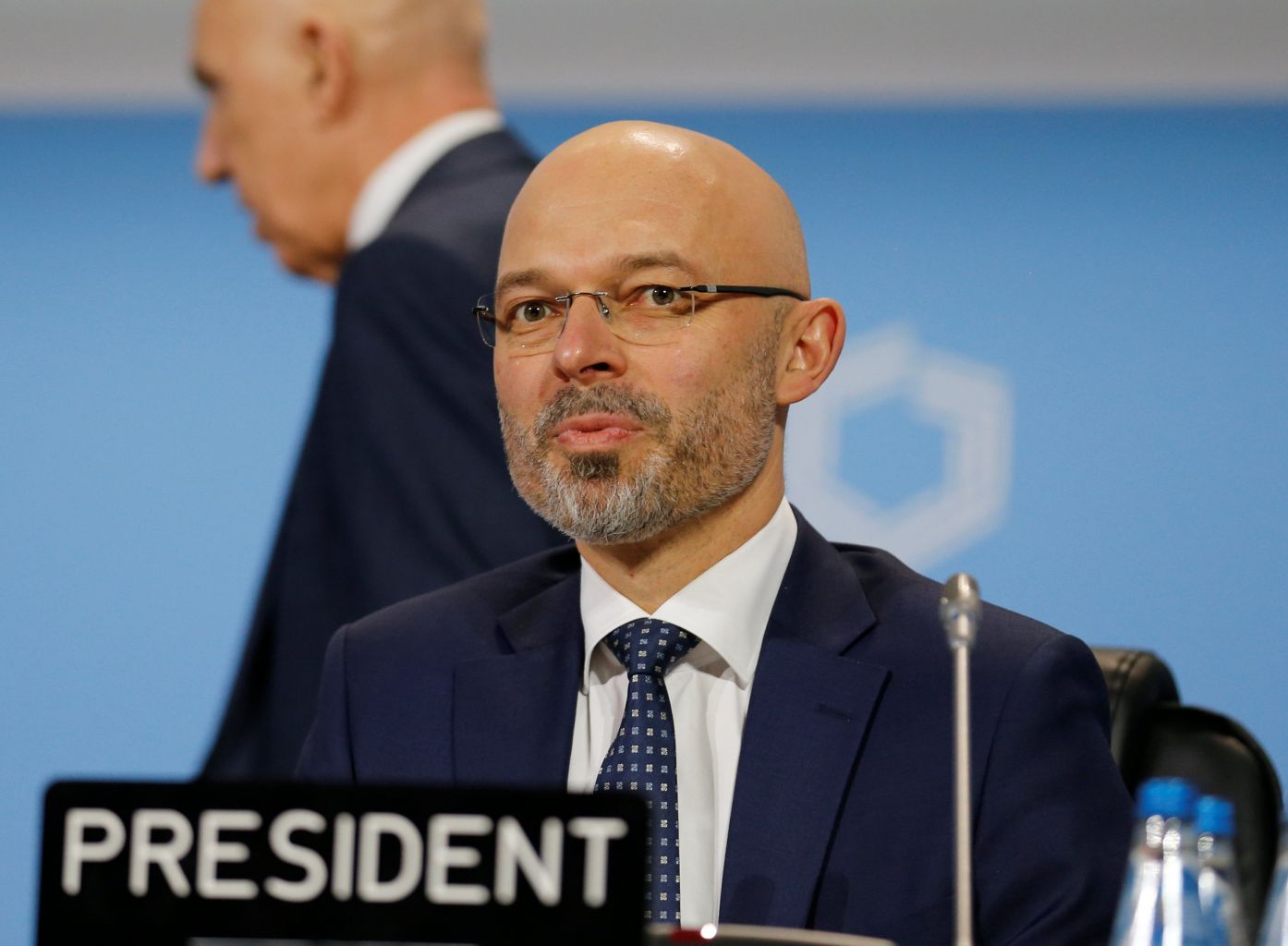Issues still unresolved, parties still working on a deal: COP24 Polish president
Sign up now: Get ST's newsletters delivered to your inbox

COP24 president Michal Kurtyka at the COP24 UN Climate Change Conference 2018 in Katowice, Poland.
PHOTO: REUTERS
KATOWICE, Poland - A global action plan to help the world avert catastrophic climate change was supposed to be hammered out in the Polish city of Katowice on Friday (Dec 14) after two weeks of negotiations, but unresolved issues are hampering progress.
In an update to the media on Friday evening, Polish president for COP24 Michal Kurtyka said: "All parties, with the support of the presidency, are working very hard to solve outstanding issues, and in order to find a balanced package here in Katowice."
"We are working very hard with parties, it is good work, and we will be informing you as soon as we have an (outcome)," said Mr Kurtyka, who is State Secretary at the Ministry of Energy in Poland, which is hosting this year's talks.
His statement came after the plenary session on the final deal had been delayed several times throughout the day - from the initial 12pm on Friday (7pm, Singapore time), to 3pm, then 7pm. The latest postponement pushed the start of the session to 4am on Saturday.
But while Mr Kurtyka's media appearance was unusual, it did not necessarily mean that nations had reached gridlock over disagreements. Said Mr Li Shuo, senior global policy adviser for international environmental group Greenpeace: "It might take one or two long nights, but we will have a deal. Key, of course is the quality of the deal."
The climate talks in Katowice aim to get almost 200 nations to agree a set of rules, or rulebook, that will allow the 2015 Paris Agreement to go into force by 2020. The agreement, drawn up during COP21 in Paris, outlines a framework for keeping global warming to well below 2 deg C.
Nations were set a three-year deadline to agree the complex set of rules, and this year's meeting aimed to flesh out the framework so nations had better guidance of how they could comply.
Progress has been made on the rulebook, and the draft on Friday morning spanned 144 pages, less than half what it was previously. But deep disagreements and mistrust between developed and developing nations have bogged down progress in several key areas, particularly in the concepts of finance and ambition.
Developing countries are calling on richer nations to be more transparent about the types of climate finance they have pledged that will enable developing countries to fight climate change. They also want a system that tracks and reports the financing to ensure the agreed goal of US$100 billion (S$137 billion) a year from 2020 is adhered to by rich states.
And with the recent scientific reports issued by multiple organisations highlighting the urgency of limiting global warming to 1.5 deg C, countries should also ramp up their ambitions to tackle climate change.
Said Mr Harjeet Singh, global lead on climate change at ActionAid International: "We should be far more ambitious, which means providing money to increase ambition. Without better assurances in the rulebook, developing countries may not implement plans that they said they would back in 2015."
He added that the world is set to warm by 3 deg C even with the pledges made under the Paris Agreement.
"If those plans are not going to be implemented, it means it will take us to a much warmer world. That is far more worrying for us," he said.


